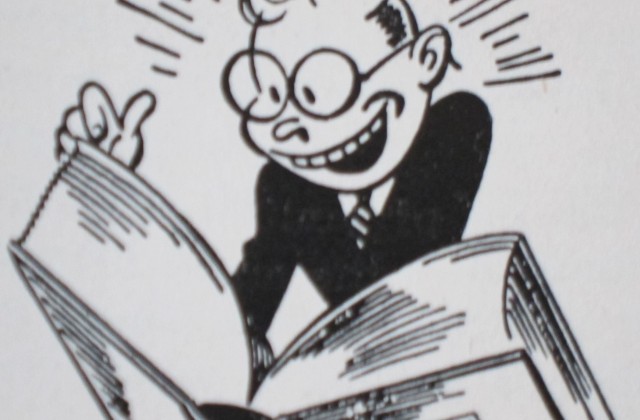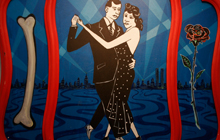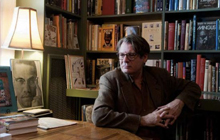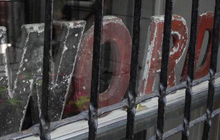The Book Problem, revisited.
The Book Problem
Were the problem book people like us, it would soon go away. It is not our weaknesses, or our sentimentality, or our nostalgia. It’s As If’ we’ve become obsolete and we haven’t. By ‘we,’ I mean We the People of the Book: Jews, Christians, Islamic people and a lot of people who believe what they want.
The problem has to do with the consequences of post-print literacy. Technology has its self-serving agenda of efficiencies that, harnessed to a post-industrial capitalism, turns out to be in the interest of the few. Post-Literacy is pixilation and pixilation has two meanings. One is too be drunk.
As Michael Korda, son of the early film director Alexander Korda & long-time editor-in-chief of Simon & Schuster, explained it to me years before the Age of the Personal Computer, “The book is one of the most perfect things invented by man. Nothing, to date, holds information as well as print on paper. Reading print-on-paper you can comprehend and retain the Torah, the Bible, the Koran, or Proust’s Remembrance of Things Past, no problem.”
“The next best vehicle for information,” he informed me, “is celluloid film. ” As his father explained it to him, in movies about two hours of information can be comprehended and retained. “With an intermission you can have Lawrence of Arabia – though I’ve met few people who comprehend it’s plot.”
“Next comes television. Now, if you’ve looked up close to a TV screen you’ve seen the pixilation, which holds information like a sieve. Hence, the attention span for the consumer of television is about 20 minutes, 30 with commercial breaks and, hence, the success of the half hour situation comedy.”
The computer’s digitalization has a yet finer pixilation. As any internet entrepreneur can tell you, the audience’s attention span’s from seconds to minutes. As all fine artists know, the difference between the way we comprehend the printed and the electronic word is the difference between a Van Gogh on-line and a Van Gogh on canvas. As all poet’s know, it’s what’s lost in translation. There is no question of which is better.
We are being pixilated and there are ulterior motives that haven’t our best interests in mind. The electronic word is not the answer to a problem. The book in history has been an impediment only to the enemies of freedom. Civilized people distinguish themselves as People of the Book, principled by a voraciousness of truth electronic media is too flimsy to sustain. What makes print literacy’s diminution a concern is, it sustains.
The fin-de-siècle’s greatest bubble is likely to be its technologizing itself into barbarism. As an antiquarian book dealer, for the past 36 years I’ve had a unique perspective on the change of consciousness responsible for the consequences of Post-Literacy resonating through our Culture. It’s been a front row seat to watch the demise of the print autonomies – Liberty, Justice, Equality – we’ve grown accustomed to being defaced.
So I rant: The technological word is a new strain of the word virus. A consciousness clothed in an alphabet plays by different rules than one an aural-tactile vocabulary scantily attires. Wrought by the hand for the eye it can reproduce thoughts that can’t be seen; hidden wisdoms.
Things are falling apart. Chinua Achebe’s novel by that near-same title illustrated the analogous consequences of literacy/modernity on his millennium-old Igbo oral culture some have called the purest form of democracy ever practiced, rendering it the stuff of nostalgia in two generations. Literacy precedes print culture by a mere five hundred years and print is now ceding its primacy as the receptacle of culture to electronic media.
When someone asks I tell them: If you want to see where we’re going, look to Nigeria. Like us, they adopted to slavery’s economics and culture. The Niger and Mississippi deltas have more in common by the hour. Out of all of history, Nigeria will have been literate for about 60 years; meaning, they got most of their information from printed sources. They have been Post-Literate since the end of their civil war in 1971; meaning, that they get most of their information from electrical sources.
We are just coming into their model of what Marshall McLuhan liked to call “Secondary Orality.” I say we have been Post-Literate since September 11th, 2001, coincidentally the publication date of my Life Turns Man Up and Down: Highlife, Useful Advice and Mad English. We’d been building up to it for a decade, since the introduction of the word processor and internet appliances.
Since then, most people here get their information electronically. It has effected a change of consciousness. We’ve a generation that’s known the internet from first consciousness and, trapped in a the web they’ve wove, can’t tell the real turtle soup from the mock. What do we tell them? Beware of Maya? That it was just your imagination, run away from you?
You’ve heard my rant, haven’t you?
As the world turns, cultures that have survived print are finding themselves better immunized to the ill-effects of what linguists call Secondary Orality than we are. Secondary Orality is Post-Literacy. Its’ media is electronic. It is about pixilated pictures talking. It is immaterial. Herein reality is topped by virtuality and apprehension betters comprehension. The electronic word has no substance. It is selling you nothing for something. Virtual is not acceptable. Electricity can be turned off.
Which is not to say it has no place. It just needs putting in its place. The electric book may only be to the new millennium what the pocket-size paperback was to mid-century; disposable literature. In an orderly period of adjustment, as a print-borne liberal-humanist culture we’d know better.
And what if something goes wrong? I thought librarians were getting beyond themselves when they let go of the card catalogs. My family and I lived within a mile of the World Trade Center. My book came out that day and I was to be signing copies in the World Trade Center’s Border’s Books at 10:30 that morning; the exact moment the tower collapsed. On 9.11 analog and digital communications went down and stayed down for days. There was no cell phone, no tv, there were no internets. The sky can fall. The tap can turn off.
In Secondary Orality, the Oral world of the majority is in ascendance, as the literate world assumes the embattled mantle of Empire in the Age of Globalization. In its re-empowerment, Orality could revenge itself by assuming modernism’s destructivist methodology of tearing everything down and putting something different in its place.
Ultimately this war, like all others, will be a racist war fought for money. In this war, the growing difference between the haves and the have-nots could transcend nationalist identities and assume the proportions of faith. Things are not what they seem. We need to listen closely to what we don’t, perhaps can’t, understand.
Nostalgia? I don’t think so. Is Literature nostalgia? No. Literature contains the hallowed traditions, intellectual and artistic benchmarks of who we are. Too much of me is wrapped up in literature; the users manuals for life. The books it comes in aren’t the problem.
The people who don’t read them are.

 Jumel Terrace B&B
Jumel Terrace B&B Life Turns Man Up & Down
Life Turns Man Up & Down The Private Library
The Private Library